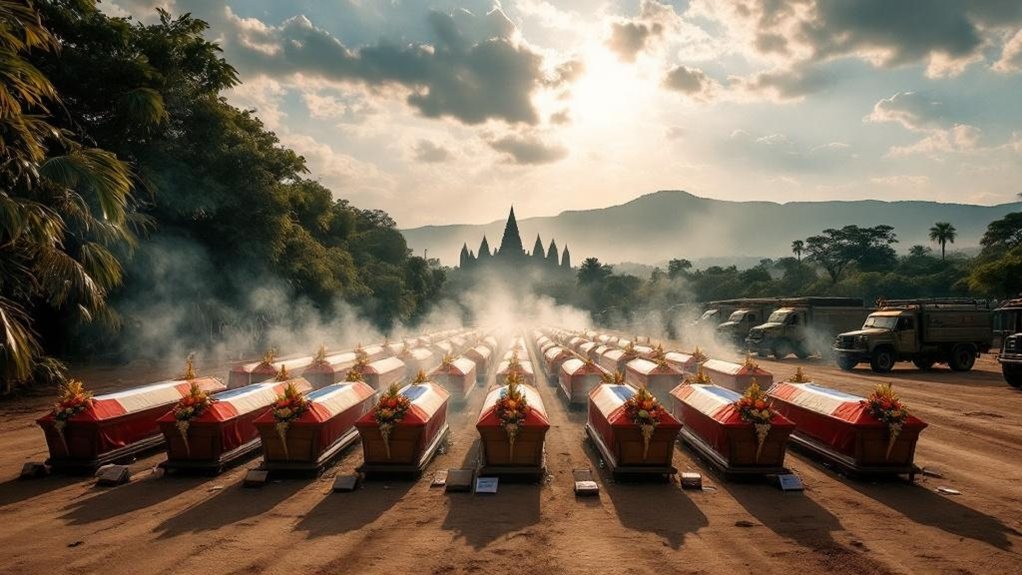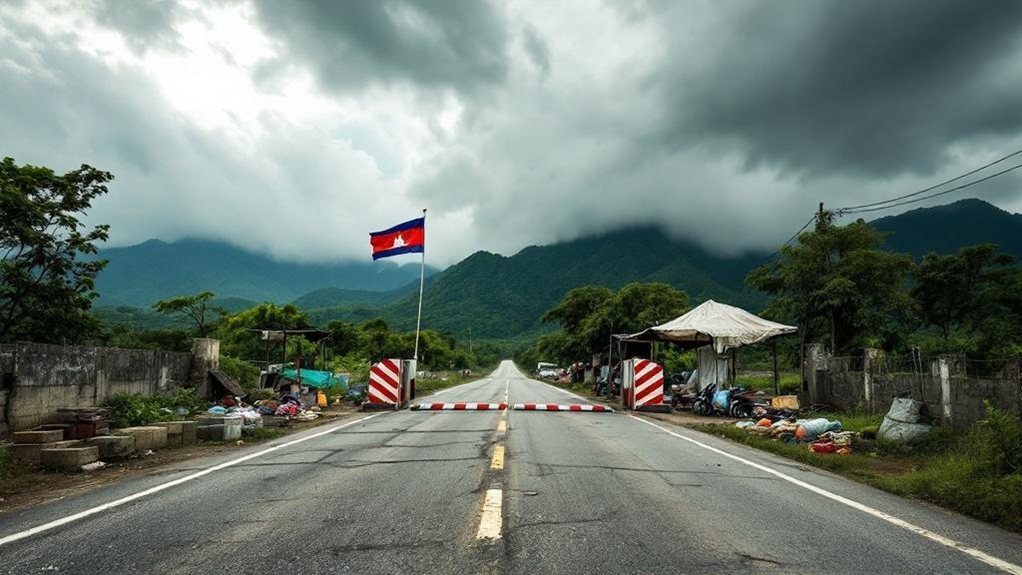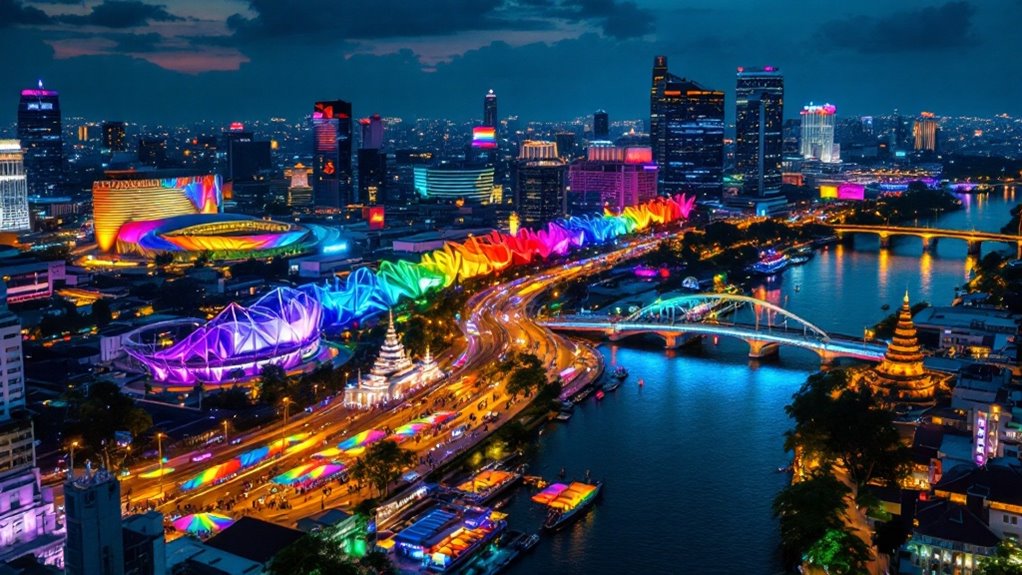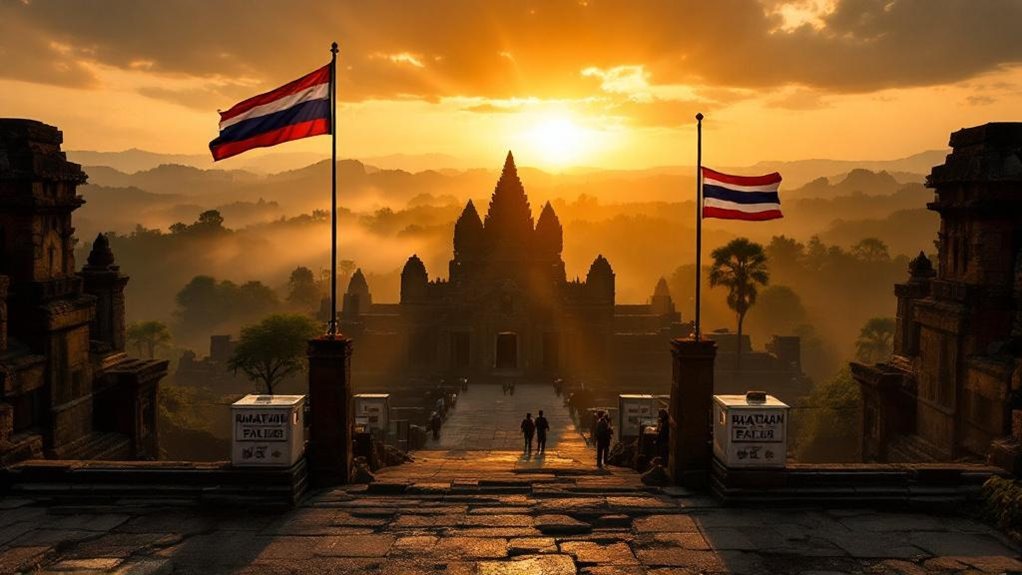In a rare act of honor, Thailand repatriated the remains of twelve Cambodian soldiers on July 27, 2025, after clashes near Phu Makhuea along the Cambodia-Thailand border. These conflicts, driven by disputes over areas near the Preah Vihear Temple, resulted in significant casualties, with over thirty-four people killed, including soldiers and civilians from both nations. The repatriation exemplified military dignity and mutual respect, recognizing sacrifices regardless of nationality. Additional details about these events present an intricate conflict narrative.
In a gesture of humanitarian respect amid ongoing tensions, Thailand repatriated the remains of 12 Cambodian soldiers on July 27, 2025, following their deaths in combat near Phu Makhuea along the contentious Cambodia-Thailand border. This move occurred after violent clashes erupted on July 24, 2025, involving disputed areas, including the vicinity of the historically significant Preah Vihear Temple. The conflict resulted in at least 34 deaths, comprising 13 civilians and 8 soldiers from Thailand, and 8 civilians and 5 soldiers from Cambodia. The roots of this conflict can be traced to early 20th-century treaties and were further complicated by a 1962 International Court of Justice ruling regarding the Preah Vihear Temple’s sovereignty. The ongoing disputes over this temple have been a major point of contention between the two nations for decades. As tensions rose, over 130,000 people were evacuated from conflict areas in Thailand, highlighting the severe impact on civilians.
Thailand honors fallen Cambodian soldiers amid border conflict and historical treaty tensions with a gesture of respect and repatriation.
The repatriation ceremony took place at 4:30 pm in the Prai Phatthana subdistrict of Si Sa Ket province, at the Chong Sa-ngam permanent border crossing. By returning the bodies, Thailand aimed to honor the deceased soldiers, emphasizing military dignity and respect for those who served their national duties amidst conflict. This act was seen as a humanitarian gesture, recognizing the sacrifices made by soldiers, irrespective of the side they fought for.
Thai soldiers who defended their territory were similarly acknowledged, underscoring the mutual respect for military service. The Cambodian soldiers were involved in ongoing skirmishes concerning border sovereignty, with Cambodian reports confirming one additional soldier killed and five injured by July 24, 2025. In contrast, Thailand recorded higher civilian and military casualties. Both nations accused one another of initiating the hostilities, adding complexity to the resolution of this border conflict.
In response to the violence, Cambodia requested an urgent private meeting of the UN Security Council on July 25, 2025, to address threats to international peace and security. The conflict strained diplomatic relations, leading to ambassador recalls and expulsions, and drew international attention, including concerns from ASEAN and the UN.
This situation highlighted the fragile peace and enduring nationalism within Southeast Asia, rooted in historical treaties and exacerbated by current geopolitical dynamics, emphasizing the need for careful diplomatic engagement to prevent further escalation.









